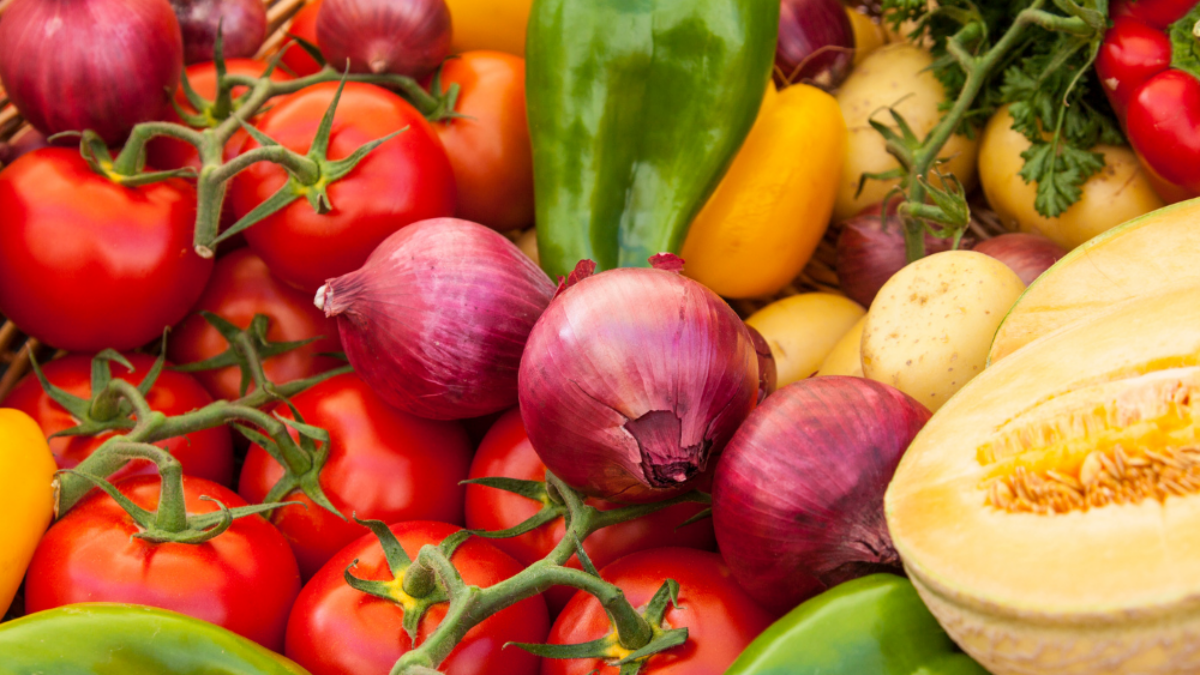The common dietary characteristics shared by the people of the Mediterranean countries are:
- High consumption of unprocessed or minimally processed plant-based products. The Mediterranean diet emphasises daily consumption of seasonal fruits and vegetables, whole grains, legumes, nuts and seeds. For example, legumes play a major role in the Greek Mediterranean diet, where they are usually eaten in the form of soup, like the familiar navy bean soup, or fasolada. Greek cuisine also features dishes which are mainly vegetable-based, such as the world-famous Greek horiatiki salad and ladera, which are popular vegetable creations cooked in olive oil (e.g. string beans in tomato sauce).
- Use of olive oil as the main source of fat. Extra-virgin olive oil enjoys a prominent place in the Greek Mediterranean diet, where it is used both for cooking and as a salad dressing.
- Use of herbs and spices instead of salt. Fresh or dried herbs and spices are widely used in the Mediterranean diet to add flavour and fragrance to foods, largely replacing the need for salt.Common herbs and spices like oregano, basil, thyme and dill are included in a large number of Greek recipes, such as traditional pies and vegetable dishes.
- Daily consumption of dairy products in moderate quantities. Traditionally, the dairy products mainly consumed in Mediterranean countries are yoghurt and cheese (especially those made with sheep’s or goat’s milk).Inthe Greek Mediterranean diet, yoghurt (used to make the famous tzatziki dip), feta and whey cheese have pride of place.
- Moderate consumption of fish, poultry and eggs. Fish, poultry and eggs constitute the leading sources of animal protein in the Mediterranean diet. Greece’s geographical position means fish and seafood are widely available and are key components of Greek cuisine. In fact, a great many traditional Greek dishes are based on fish or seafood, such as batter-fried cod with garlic sauce and cuttlefish with greens.
- Moderate consumption of red or processed meat. In the Mediterranean diet, red meat, either processed (e.g. deli meats) or unprocessed (e.g. beef, pork), is consumed only occasionally and usually in small quantities. At Greek Easter, eating lamb or goat is an exception based on tradition, as these meats are considered to be central to celebratory meals often associated with the country’s religious customs.
- Limited consumption of processed products. The Mediterranean diet focuses on preparing meals at home and limiting the consumption of processed foods. Such foods and beverages, like packaged sweets and desserts, salty snacks and baked goods, as well as soft drinks, are only occasionally consumed and mainly at social gatherings.
- Moderate consumption of wine with meals. The Mediterranean diet, much like its Greek version, includes a moderate consumption of alcohol, mainly in the form of red wine. In Greece, red wine is often consumed along with meals and mainly as part of social events.
Last but not least, the Mediterranean diet places emphasis on the social aspect of food (sharing with friends and family), and the value of daily physical activity.










